Solidarity Statement from Gorkha Students, JNU to the students of North Bengal University (NBU) fighting for Gender Justice
We students of JNU salute and take inspiration from the historic struggle waged by students of NBU against the recent incidents (15th August, 2016) of sexual harassment in campus premises of North Bengal University. The struggle has unsettled the deep patriarchal anxiety of the administration and will definitely contribute to expansion of the spaces for women (both within and outside campus premises).
The patriarchal unequal gender relation of society also permeates the work premises. This power relation has its own class, caste and racial manifestations. Under such hierarchical social relation the gender justice cannot be achieved if the perpetrator lies in top of power relation. Failure to deliver gender justice only strengthens the forces of patriarchy and sexual-harassers and jeopardizes the space for women to come up and lodge complaints against similar cases of violence. The administration throughout country has repeatedly used their authority to shield sexual harassers even after they have been found guilty under enquiry, particularly when the guilty is someone with influence. At the one hand laws (Prevention of Sexual Harassment in Work Place Act, 2013) which are supposed to protect and give justice also reflects the same patriarchal attitude. Hence, to look matter of sexual harassment and to sensitise campus on issue of gender, we think that independent and effective body like Gender Sensitisation Committee Against Sexual Harassment (GSCASH), as per the Supreme Court's Vishaka Judgement guidelines 13th August, 1999, should be constituted in every work place of this country and decisions of the GSCASH should be made binding upon the administration or any person with sufficient influence/power. The ongoing struggle of students in NBU can make sure that such proper institutional mechanism is instated in campus premises. Even regressive act like Prevention of Sexual Harassment in Work Place Act, 2013 makes its mandatory to do so.
We believe promoting a security centric solution to the issue of crime against women (like putting the entire campus under the gaze of CCTVs) will only worsen the situation for female students and hamper their mobility within campus. The security centric approaches reflect the same protectionist patriarchal male chauvinist attitude that will perpetuate the age old unequal gender relations. Such security centric measures are very likely to be used by authority as tool of extensive surveillance and discipline and contrary to initial believe, can be used to further curtail the freedom of students. Definitely prisons are safe, but we don’t want our campus to be that.
We demand speedy trail and prompt justice to be delivered. We demand the perpetrators to be brought to justice, through an impartial investigation and speedy trial in appropriate forum of authority. We extend our solidarity to the uncompromising struggle of students of NBU on issue of sexual harassment and gender justice.
Only the unity among an oppressed can break the chain of patriarchy! Let us all join hands together and raise voices for gender justice!
-Gorkha Students, JNU
Issued on 20/10/2010
We students of JNU salute and take inspiration from the historic struggle waged by students of NBU against the recent incidents (15th August, 2016) of sexual harassment in campus premises of North Bengal University. The struggle has unsettled the deep patriarchal anxiety of the administration and will definitely contribute to expansion of the spaces for women (both within and outside campus premises).
The patriarchal unequal gender relation of society also permeates the work premises. This power relation has its own class, caste and racial manifestations. Under such hierarchical social relation the gender justice cannot be achieved if the perpetrator lies in top of power relation. Failure to deliver gender justice only strengthens the forces of patriarchy and sexual-harassers and jeopardizes the space for women to come up and lodge complaints against similar cases of violence. The administration throughout country has repeatedly used their authority to shield sexual harassers even after they have been found guilty under enquiry, particularly when the guilty is someone with influence. At the one hand laws (Prevention of Sexual Harassment in Work Place Act, 2013) which are supposed to protect and give justice also reflects the same patriarchal attitude. Hence, to look matter of sexual harassment and to sensitise campus on issue of gender, we think that independent and effective body like Gender Sensitisation Committee Against Sexual Harassment (GSCASH), as per the Supreme Court's Vishaka Judgement guidelines 13th August, 1999, should be constituted in every work place of this country and decisions of the GSCASH should be made binding upon the administration or any person with sufficient influence/power. The ongoing struggle of students in NBU can make sure that such proper institutional mechanism is instated in campus premises. Even regressive act like Prevention of Sexual Harassment in Work Place Act, 2013 makes its mandatory to do so.
 |
| The procession taken out by NBU students and research scholars on Friday. Picture by Kundan Yolmo |
We demand speedy trail and prompt justice to be delivered. We demand the perpetrators to be brought to justice, through an impartial investigation and speedy trial in appropriate forum of authority. We extend our solidarity to the uncompromising struggle of students of NBU on issue of sexual harassment and gender justice.
Only the unity among an oppressed can break the chain of patriarchy! Let us all join hands together and raise voices for gender justice!
-Gorkha Students, JNU
Issued on 20/10/2010

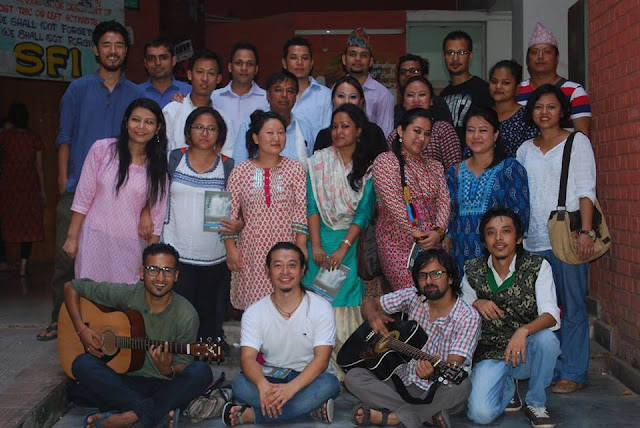
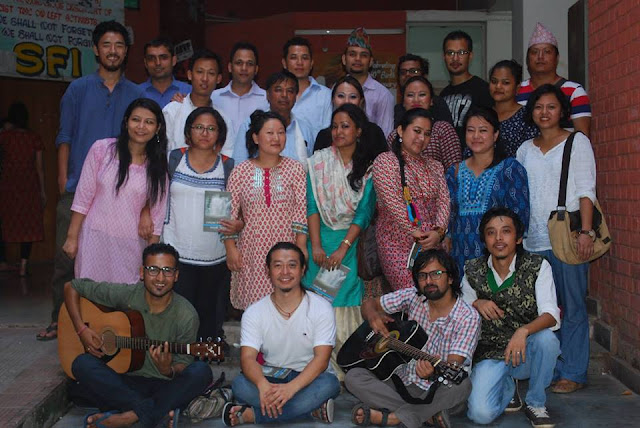
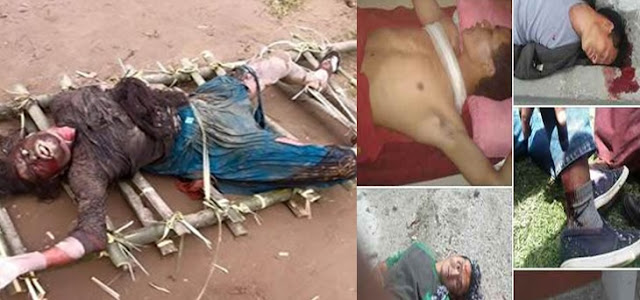


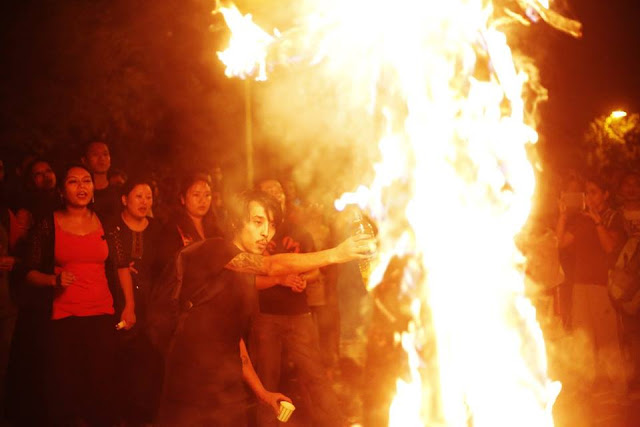
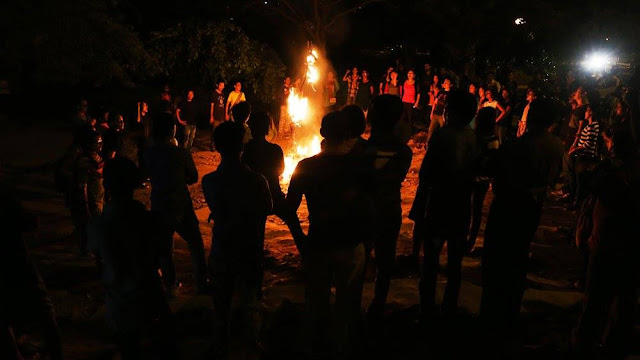






+Avinash+Gurung+at+the+Gorkha+Rangamanch+Bhavan+in+Darjeeling+on+Saturday;+Bimal+and+Asha+Gurung+in+the+audience.+Pictures+by+Suman+Tamang.jpg)


